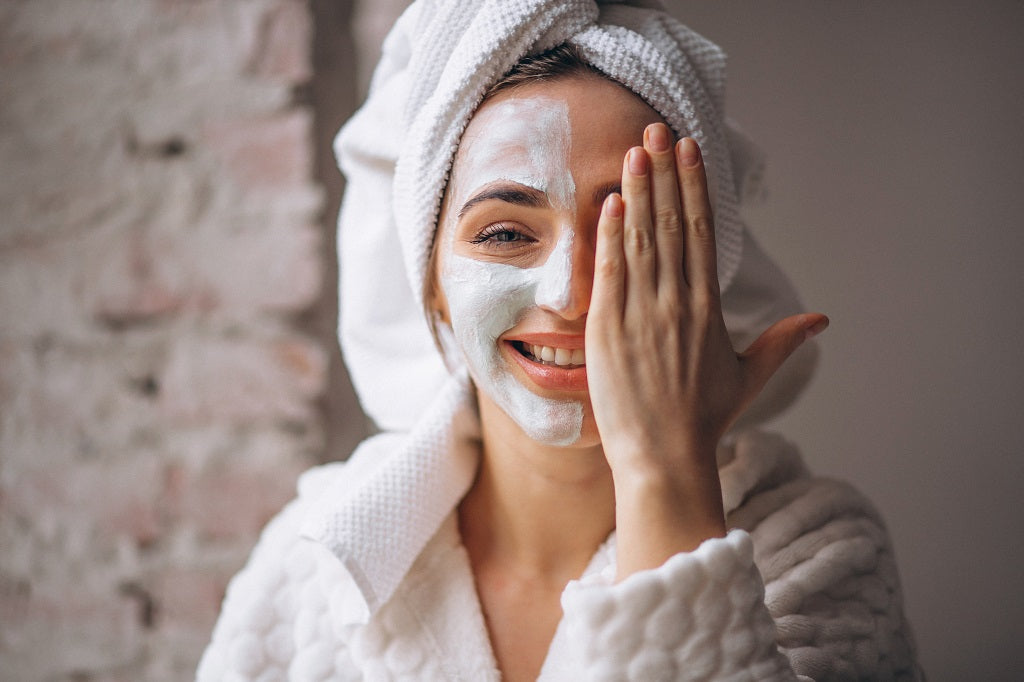Retinol is one of the well-known anti-ageing miracle skincare ingredients. It is a Vitamin A derivative that is used in the beauty industry for treating acne and skin ageing. This age-defying skincare ingredient helps prevent the appearance of wrinkles and dullness, making your skin look clear, radiant, and youthful.
Retinols are known to be OTC versions of retinoids. Although retinols are not as strong as retinoids, they are still effective when compared to their other OTC counterparts such as retinyl palmitate or retinaldehyde. This science-backed formula is a foundation for youthful skin and the reason many estheticians vouch for Retinol.
Feeling inquisitive to know more about this mystic skincare ingredient? Can retinol be a valuable addition to your daily skincare routine? Learn more about this magical skincare ingredient and how it can minimize wrinkles, dullness and make you look younger.
What Is Retinol?
Retinol is a Vitamin A derivative of retinoid. When applied topically, retinol combines with other enzymes found within the skin and converts into retinoic acid. Though retinoic acid is also available for topical application, it can be harsh on your skin as it does not break down naturally into a simpler form. Hence retinol is considered to be the safest for topical consumption.
Many anti-ageing skincare products contain retinol as it helps to induce cell turnover and promote cell regeneration. It was first used in 1970 for treating acne patients as it prevents clogging of pores. It is available in different strengths; dermatologists initially recommend retinol creams with a 0.20 to 0.50 strength.
Also Read : Clogged Pores - Causes, Tips and Natural Remedies
How Does Its Work?
Unlike most anti-ageing skincare products which work only on the outer layer of the skin, removing the dead skin cells of the skin surface, retinol penetrates deeper into the skin. Here retinol helps to neutralize the damaging effect of the free radicals and stimulates collagen production, thereby improving the elasticity of your skin. It keeps your skin hydrated, plump, eliminating wrinkles and fine lines.
Retinol not only increases the cellular turnover but also exfoliates your skin, making it look soft, smooth, and clear. It is beneficial for people with oily skin as retinol controls the excess sebum production. Moreover, it also helps in reducing acne and acne-related scars. Plus, it unclogs the pores and creates an anti-comedogenic substance that prevents the formation of comedones. Make sure that you use the retinol-based product regularly for at least 5-6 weeks to see the difference.
What Are The Major Skin Concerns For Which Retinol Is Used?
Derms recommend retinol for treating various skin concerns such as acne, dullness, wrinkles, dark spots, blemishes, photo ageing (freckles), uneven skin tone, hyperpigmentation, or melasma. But retinol should not be considered an all-in-one solution for all your skin problems. It is not suitable for people with dry skin conditions, contact allergies, and people with sensitive skin.
Dermatologists always recommend starting using retinol at a lower strength to avoid any kind of skin irritation and then gradually increase over the period of time. Initially, you can start off at 0.05% and gradually increase the strength of retinol once your skin becomes tolerant to it.
How To Include Retinol In Your Skincare Routine?
Retinols are an integral part of any skincare routine. Our skincare expert recommends including Vitamin C serums and retinol in your daily skincare regime. Vitamin C serums get absorbed into the skin easily and neutralize the damage caused by free radicals. Vitamin C serum should be used in the morning as it helps to counter the damaging effect of the sun, followed by a moisturizer with SPF 30 or above.
Also Read : Beauty Benefits Of Vitamin C Serum
Our skincare expert advises using retinol in the evening as it stimulates collagen production, repairs the damaged skin cells, unclogs the pores, and gently exfoliates the skin removing all the dead skin cells and debris from the skin.
Start your evening skincare regime by applying a gentle cleanser. Pat your skin dry and then apply a moisturizer which is followed by a retinol-based night cream. Look for hydrating ingredients such as hyaluronic acid and ceramides in your moisturizer as it helps to keep your skin soft and supple. Retinol, which is well known for its age-defying property will make your skin wrinkle-free, clear, flawless, and youthful.
It is important to note that retinol can make your skin more sensitive to the sun, so make sure that you apply a sunscreen with a broadband spectrum having SPF 30 or above before going out in the daytime.
Side Effects Of Retinol
If you are new to retinol, then initially you may experience itchiness, dryness, and skin irritation. Other common side effects of retinol are skin peeling and redness. These side effects may be temporary which will subside in a couple of days.
Try to consider reducing the strength of retinol if irritation persists. Initially start with 1 day in a week and then gradually increase it to 2-3 days a week. Apply the retinol-based product at least 20 minutes after cleansing your face.
If you have severe acne, consult a dermatologist before applying retinol as it can cause skin irritation. Exposure to sunlight after the topical application of retinol can cause skin sensitivity. Retinols are not recommended for pregnant women. People with dry skin conditions such as eczema, rosacea, rashes should avoid retinol-based products.
If you have any major skin concerns, consult a dermatologist before using retinol.
Also Read : Top 10 Things To Know Before You Use Retinol
Disclaimer: All the content on anveya.com/blogs is solely for information. It is not intended to be a substitute for professional medical advice, diagnosis or treatment. Always seek the advice of your physician or a qualified health care provider. The information, suggestion or remedies mentioned on this site are provided without warranty of any kind, whether express or implied.



